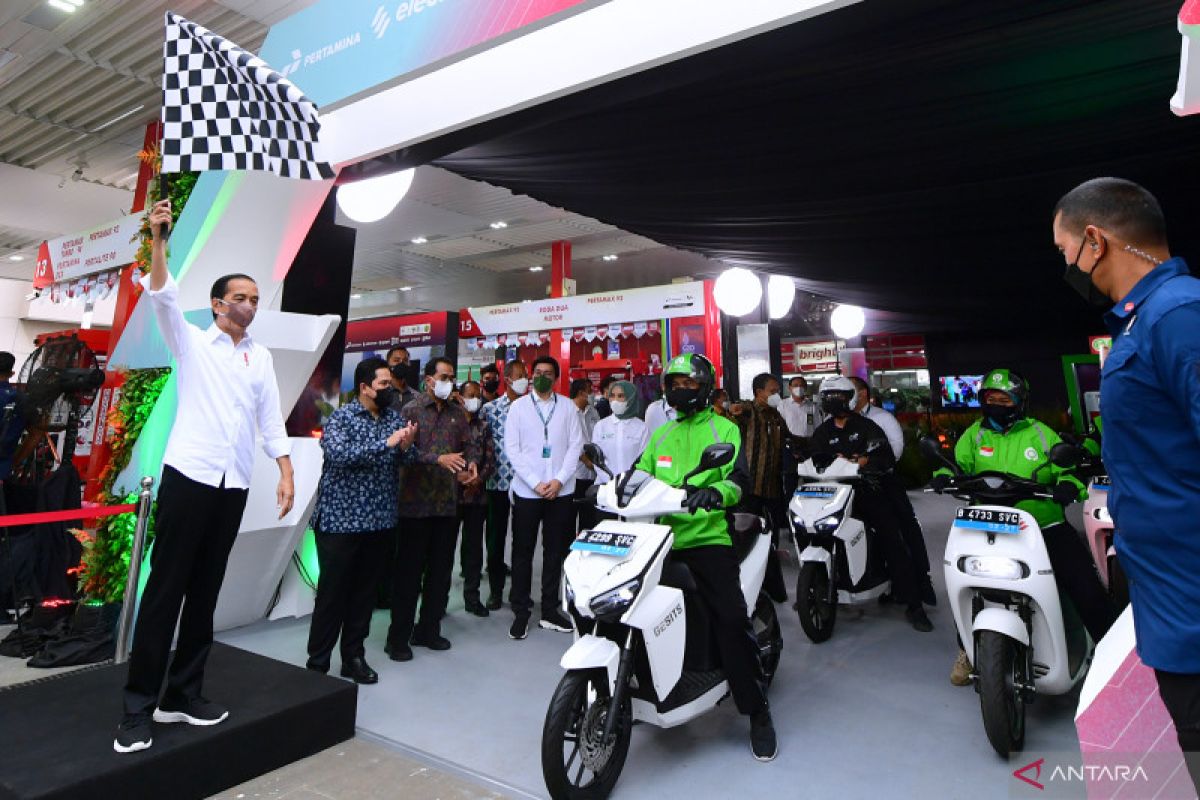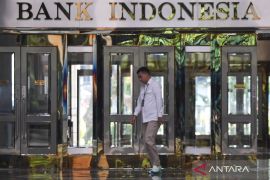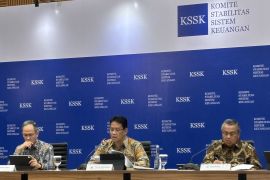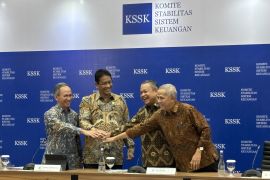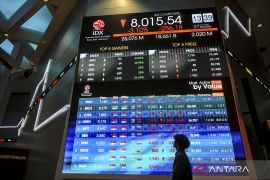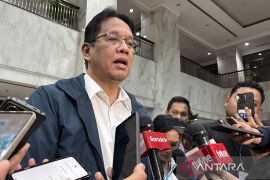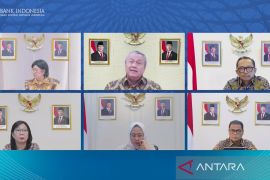The rise in temperatures has caused extreme weather to occur more often. More intense heatwaves and more rainfall could trigger disasters and threaten the availability of food and water. As a result, the health of humans and ecosystems on Earth could be disrupted.
The risks of climate change could also become harder to handle during crises, such as pandemics and conflicts between countries.
"Nearly half of the world's population lives in areas that are highly vulnerable to climate change. In the last decade, deaths from floods, droughts, and storms were 15 times higher in areas that were highly vulnerable," one of the 93 authors of the report, Aditi Mukherji, said.
Therefore, to prevent global temperatures from exceeding 1.5ºC above the pre-industrial level, greenhouse gas emissions need to be reduced massively, quickly, and sustainably across all sectors.
Indonesia is targeting to reduce carbon dioxide emissions by 31.89 percent on its own and 43.20 percent with international support by 2030 to reach the net-zero carbon emissions target by 2060.
Central bank's contribution
Financing, as an investment to maintain the earth's climate, needs to be increased. In Indonesia, the Ministry of Finance, Bank Indonesia (BI), the Financial Services Authority (OJK), and the Indonesia Deposit Insurance Corporation (LPS) have synergized to encourage green financing.
The synergy is aimed at meeting the needs of funding to reach the emission reduction target, which is predicted to reach US$281 billion by 2030. Only 34 percent of the financing can be fulfilled through public-sourced funds or the state budget (APBN).
As a central bank, BI has also made several policies to encourage banks to increase green financing, including through the easing of the loan-to-value (LTV) or financing-to-value (FTV) ratio.
In 2020, BI eased the LTV and FTV for credits or funding of green properties to up to 100 percent.
Banks can also extend financing credit for electric vehicles with a zero percent down payment.
Executive Director for the Strategy and Governance Management Department of BI Dwityapoetra Soeyasa said that banks need to carry out an assessment of the risks of each debtor.
BI is also helping banks to fulfill their Macroprudential Inclusive Financing Ratio (RPIM) obligations through the purchase of sustainability bonds and the provision of credit or financing to PT Sarana Multi Infrastruktur (SMI), as the manager of SDG Indonesia One.
In addition, macroprudential incentives in the form of easing the fulfillment of statutory rupiah reserves at BI are also being provided to banks that extend funds to priority and inclusive sectors.
BI is also helping micro, small, and medium enterprises (MSMEs) to develop into green MSMEs amid increasing demand for environmentally friendly products.
MSMEs are considered green MSMEs based on several indicators, which include aspects of production, marketing, human resources, and finance.
Sustainable economy
To welcome the easing of policies by BI, banks in the country are also encouraging green financing.
One of the banks is state-owned bank PT Bank Mandiri Tbk, which, as of March 2023, has provided financing of up to Rp222 trillion (around US$14.95 billion), up 11 percent year over year (yoy), to sectors implementing environmental sustainability principles, social equity, and good governance.
The financing is being provided to the MSME, sustainable agriculture, renewable energy, and clean transportation sectors, and is equivalent to 25 percent of the company's portfolio for banks.
Meanwhile, PT Bank Central Asia Tbk (BCA) has recorded that the provision of credits to the sustainability sector reached Rp180.8 trillion (around US$12.18 million) during the first quarter of this year, including financing of Rp327 billion (around US$25.06 million) for the electric vehicle ecosystem.
The financing provided by the bank to the sustainability sector grew 11.9 percent compared to the same period in the previous year and accounted for up to 25 percent of the total financing portfolio.
Then, state-owned bank PT Bank Syariah Indonesia Tbk (BSI) has a special strategy to attract people's interest in Sharia-based electric vehicle funding, among others, with a competitive margin starting from 2.22 percent, down payments starting from zero percent, and a funding period of up to 7 years.
According to BSI data, as of March, the financing of electric cars reached Rp8.1 billion (around US$544,192), which also supported an increase in car financing of 62.1 percent yoy to Rp3.1 trillion (around US$208.27 million).
OJK said that credits with a total value of Rp728.9 trillion (around US$48.97 billion) have been provided in green financing as of April, with Rp1.28 trillion (around US$86 million) provided to finance electric cars and Rp28.9 trillion (around US$1.9 billion) to finance projects related to new and renewable energy.
Given the increasingly massive support from the government, BI, and OJK, the provision of financing to the sustainability sector is expected to continue to increase and is hoped to support Indonesia in achieving its net-zero carbon emissions target sooner than 2060.
Related news: Well-managed climate transition crucial for risk mitigation: BI
Related news: Bappenas supports private financing scheme for Bintan's green circuit
Related news: Bappenas readies blue financing to develop marine, fisheries sector
Translator: Sanya Dinda, Raka Adji
Editor: Azis Kurmala
Copyright © ANTARA 2023
